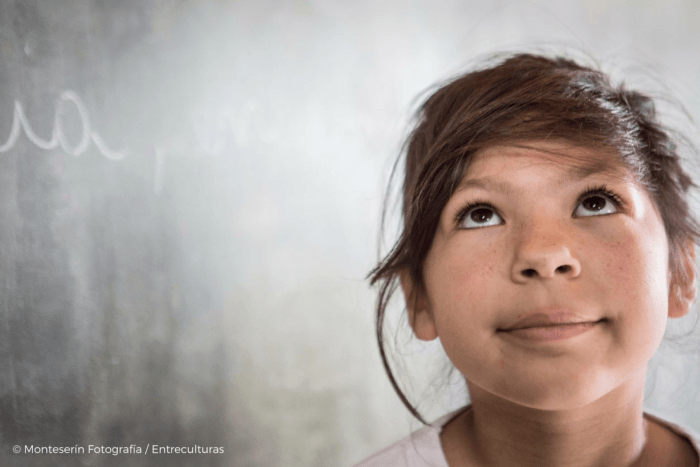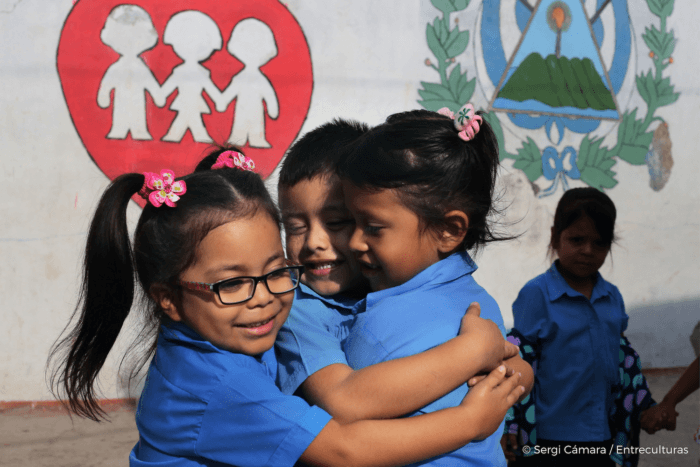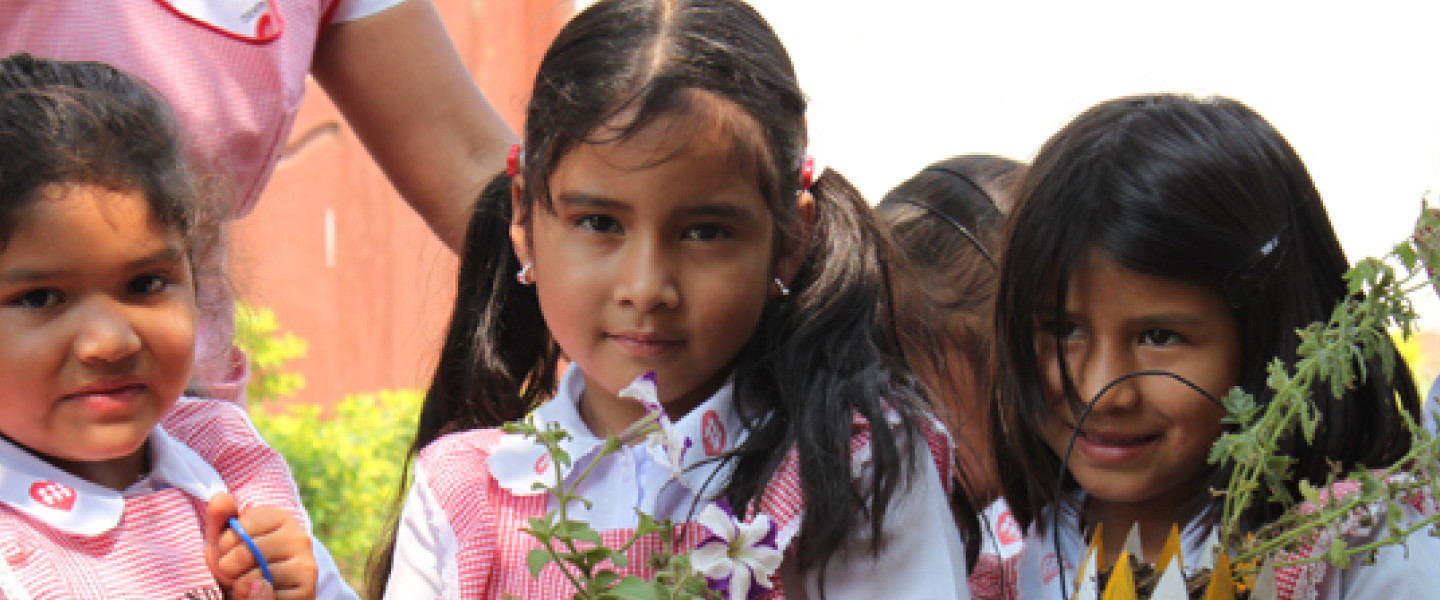
Every girl has the right to live free from violence, discrimination, intimidation and abuse. However, today, violence denies this right to millions of girls around the world and continues to be one of the most persistent, systematic and widespread violations of human rights.
For this reason, on the occasion of the International Day of the Girl Child, Entreculturas-Fe y Alegría Spain has launched the campaign “La Luz de las Niñas” to raise awareness regarding the inequalities suffered by girls, protect them from violence, ensure their ability to choose their future, and to advocate to transform the causes of injustice towards them”, according to Raquel Martín, Director of Communication and Institutional Development at Entreculturas.
“We want their light to shine. Girls have the right to a childhood with equal opportunities, free from fear, threats and aggression. Education can defend them, protect their rights, and transform their lives” says Raquel Martín.
Dani Villanueva, Vice President at Fundación Entreculturas, asserted: “We are not talking simply of anecdotes: 240 million girls see their lives threatened by violence, more than 200 million girls in the world have suffered genital mutilation. Each year 12 million girls are married before they turn 18. More than 150 million suffer sexual violence. And 34.2 million girls and women are refugees or displaced. But behind each of these figures is a face and a name.” The majority of girls in the world are forced to do housework such as cooking, fetching firewood, water or taking care of their younger siblings. These forms of violence against girls provoke serious psychological, physical and social consequences that mark them forever, taking them away from school, their childhood, and their opportunities.

To offer witness to these realities of injustice, Sifa Kaite, the Child Protection Coordinator at JRS Chad and Sofía Gutiérrez, the Public Advocacy Coordinator at Fe y Alegría Guatemala, shared their testimonies at the launch.
Girls must receive support from public protection systems: this implies strengthening the coordination of institutions working in the education, health, child protection and justice sectors, among others. It is necessary to eliminate the obstacles that impede access to girls’ education by allocating sufficient investment and applying incentives and scholarships. It is also especially relevant to ensure that those girls who suffer from multiple disadvantages – due to the fact that they live in remote or conflict areas, belong to minorities, have some type of functional diversity, or are wives and teenage mothers – have access to a quality education that inspires, trains and offers opportunities to carry out their goals.
Once girls are in school, the challenge does not end there, and we must continue to educate in equality. Both governments and educational communities must work to transform schools into safe spaces, which implies having inclusive school infrastructures that are appropriate to their specific needs, as well as promoting awareness within the school community on unequal gender norms that fuel violence in order to critically reflect on them and thus transform these practices.
At the same time, schools must establish programs that seek to prevent, detect, and act on all cases of violence, generating trust in the system among girls and moving away from promoting blame or even stigma. Teachers and administrators must be trained in gender equality, as well as prevention and detection of violence against girls.
To achieve the transition towards an egalitarian society, citizens, organizations, schools and communities have the duty to break the silence in the face of violence against girls and guarantee access to justice and respect for their human rights.
View original post (Entreculturas-Fe y Alegría Spain)
Learn more about the campaign “La Luz de las Niñas”.
Download the report (In Spanish).
